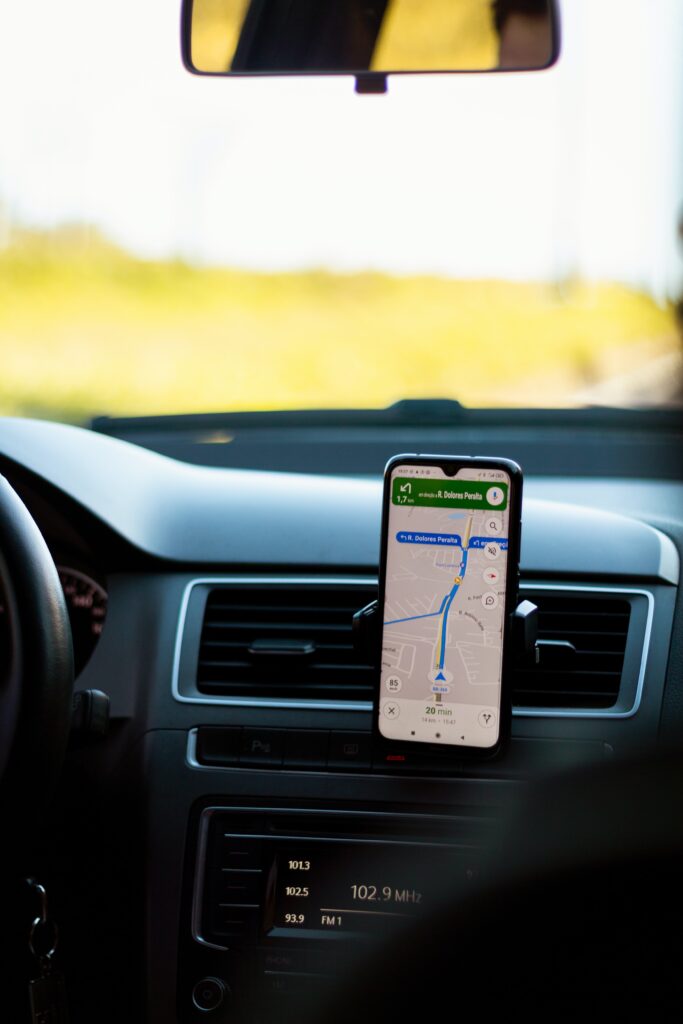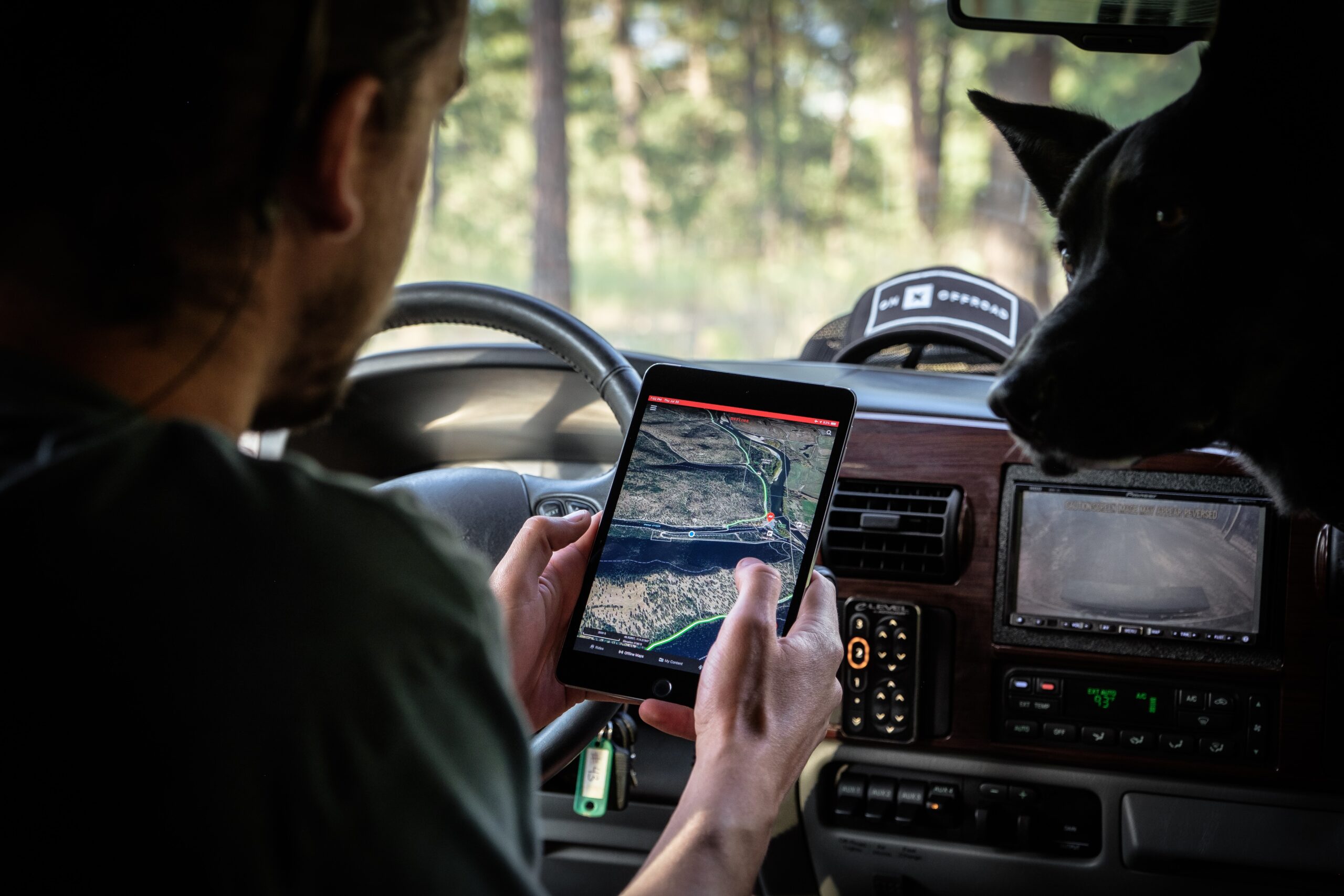As an Amazon Associate, I earn from your qualifying purchases. When you click an affiliate link, we get a small commission at no cost to you.
Imagine being able to monitor and optimize your fleet’s efficiency on the fly! With Efficiency Optimization with GPS Vehicle Management, you can do precisely that. This state-of-the-art system allows you to track your vehicles, evaluate performance, and implement unprecedented control over your operations. With real-time updates and intuitive analytics, even the task of managing multiple vehicles across various locations becomes a breeze. The future of efficient fleet management is here, and it’s ready to take your operations to the next level.
Understanding GPS Vehicle Management
Definition of GPS vehicle management
GPS vehicle management involves the use of Global Positioning System (GPS) technology to monitor, manage, and control the activities and operations of a vehicle, or a fleet of vehicles. This system is equipped with various features and tools that enable owners and managers to enhance the efficiency, safety, and performance of their vehicles.
How GPS vehicle management systems work
GPS vehicle management systems use a GPS tracking device installed in a vehicle to provide real-time information about its location, speed, direction, idle time, route, and more. The GPS device transmits signals to the satellites, and these signals are then received by a control center that processes the data. This data is then displayed on digital maps and reports, making it easier for the user to visualize and understand the vehicle’s activities.
Key components of a GPS vehicle management system
A fundamental GPS vehicle management system comprises three main components:
- GPS tracking device: This is installed in each vehicle, collects and transmits data about the vehicle’s operations.
- GPS tracking server: This receives data from the GPS tracking device, stores it, and processes it.
- User interface or dashboard: This enables users to access, view, and interpret the data from the server.
Types of vehicles suitable for GPS management
Almost all types of vehicles can benefit from GPS vehicle management. This includes commercial vehicles (such as buses, trucks, etc.), fleet vehicles, emergency service vehicles, private cars, motorcycles, boats, and aviation vehicles. In essence, if a vehicle moves, it can be tracked and managed with a GPS vehicle management system.
Key Benefits of GPS Vehicle Management
Increased vehicle efficiency
With GPS vehicle management, you can identify inefficiencies such as unproductive routes, excessive idling, and unnecessary detours, which can then be addressed to ensure optimal use of the vehicle.
Reduced fuel consumption
GPS vehicle management allows for effective route planning, which can significantly reduce fuel consumption. Furthermore, it helps you monitor and reduce vehicle idling times, thereby saving fuel.
Improved vehicle security
The use of GPS tracking makes vehicle theft much less likely. Even if a vehicle is stolen, it is much easier to recover due to real-time location tracking.

Real-time monitoring of vehicle activities
With GPS vehicle management, you can monitor your vehicles’ activities in real-time. This includes tracking vehicle location, route, speed, idle times, and more.
Better management of vehicle maintenance
GPS vehicle management systems often come with features for alerting you when maintenance is due. This helps prevent breakdowns and prolongs the life of the vehicle.
Improved driver behaviour
With GPS tracking, you can monitor driver behaviour and enforce responsible driving practices. It also provides a means to rate and incentivise good driving behaviour.
Addressing Efficiency Optimization with GPS Vehicle Management
Understanding efficiency optimization
Efficiency optimization is about making the best possible use of your resources. In terms of vehicle management, it refers to maximizing vehicle utilization, minimizing fuel consumption, enhancing driver productivity, reducing maintenance cost, and improving overall operational efficiency.
How GPS vehicle management contributes to efficiency optimization
A GPS vehicle management system can provide real-time data on vehicle location, speed, mileage, idle time, and more. These metrics are critical for identifying inefficiencies and optimizing resources for better performance. For example, route planning can be enhanced by selecting the most efficient route, and idle times can be reduced by implementing strict idling policies.
Linking efficiency optimization and cost savings
Improved efficiency ultimately results in significant cost savings. By reducing fuel consumption, optimizing routes, handling timely maintenance, and improving driver behaviour with GPS vehicle management, you can substantially cut costs and save money.
In-depth look at Real-time Monitoring
Benefits of real-time monitoring
Real-time monitoring enables you to keep track of your vehicles at all times. You can identify potential issues as they happen and act promptly, improving overall efficiency and reducing the risk of theft or misuse.

Role of real-time monitoring in efficiency
Real-time monitoring plays a crucial role in increasing efficiency. With the help of live tracking, optimal routes can be identified, journey times can be minimized, and issues such as excessive idling or unauthorized use can be addressed promptly.
How GPS enables real-time monitoring
GPS technology allows for the real-time monitoring of vehicles. The GPS devices installed in vehicles send signals to satellites, which are then received by GPS tracking servers. This data is processed and made available to users via a user interface or a dashboard, providing real-time tracking and analytics of the vehicles.
Maintenance Management Features and Benefits
Maintenance alerts: its role and benefits
Maintenance alerts are notifications that remind you when a vehicle is due for servicing. Regular maintenance is critical for the smooth running of vehicles, reducing the risks of breakdowns and prolonging the lifespan of your vehicles.
Preventive maintenance strategies
GPS vehicle management helps you implement effective preventive maintenance strategies. By providing data on vehicle usage, mileage, and engine condition, you can plan and schedule regular maintenance tasks preventing sudden breakdowns and expensive repairs.
Improving vehicle lifespan using GPS vehicle management
Proper maintenance significantly extends the lifespan of your vehicles. By providing timely alerts for due services and facilitating preventive maintenance strategies, GPS vehicle management can greatly enhance the lifespan and performance of your vehicles.
Reducing Fuel Consumption using GPS Vehicle Management
GPS routing and fuel economy
By providing real-time traffic updates and facilitating optimal route planning, GPS vehicle management can significantly improve fuel economy. The system can suggest the shortest and least congested routes, reducing travel time and fuel consumption.
Idle time monitoring and its impact on fuel consumption
Excessive idle times can lead to unnecessary fuel consumption. GPS vehicle management systems provide real-time data on idle times, helping you identify and reduce such inefficiencies.

Fuel theft prevention techniques using GPS
One of the less obvious, but equally valuable benefits of GPS vehicle management is fuel theft detection. Sudden drops in fuel levels can be detected in real time, helping you identify and prevent fuel theft.
Enhancing Driver Efficiency and Behaviour
Monitoring driver behaviour
One of the critical features of GPS vehicle management is the ability to monitor driver behaviour. By keeping track of speeding, harsh braking, rapid acceleration and other driving habits, you can encourage safer and more responsible driving behaviour among your drivers.
Driver scores and performance improvement
GPS vehicle management systems may also have features to score drivers on their performance. This score can be used as a basis for providing incentives and rewards, leading to improved driver efficiency and satisfaction.
Role in reducing accident risk
By encouraging safe driving practices, GPS vehicle management can reduce the risk of accidents. Speeding alerts, for instance, can prompt quick interventions, thereby preventing accidents.
Data Reporting & Analytics
Determining Key Performance Indicators (KPIs)
To effectively manage a fleet of vehicles using a GPS vehicle management system, you need to identify KPIs such as mileage, fuel consumption, idle time, etc. Tracking these KPIs can provide valuable insights and help you make informed decisions for improving performance and lowering costs.
Use of data analytics in improving vehicle management
Data analytics is about interpreting and utilizing data to improve decision making. By analyzing the data gathered from your GPS vehicle management system, you can identify patterns, trends, and anomalies that can help you improve vehicle performance, driver behaviour, and overall operational efficiency.
Generating actionable insights for organizational improvements
The data and analytics provided by GPS vehicle management systems can be translated into actionable insights. These insights can point out inefficiencies, areas of waste, and opportunities for improvement, enabling you to make strategic decisions that enhance your organization’s performance and profitability.
GPS Vehicle Management and Regulatory Compliance
Ensuring fleet regulatory compliance
Various regulations govern the operation of vehicles and fleets. These regulations encompass areas such as safety, environment, and others. With features like speeding alerts, maintenance reminders, emission tracking etc., GPS vehicle management can help ensure compliance with these regulations.
Role in safety and environmental regulations
GPS vehicle management plays a critical role in upholding safety and environmental regulations. By encouraging safe driving, keeping track of maintenance schedules, and monitoring emission metrics, you can ensure your fleet’s compliance with safety and environmental regulations.
GPS record keeping for proof of compliance
Accurate record keeping is essential for regulatory compliance. GPS vehicle management provides a reliable and precise log of vehicle activities, which can be used as evidence of compliance during audits or inspections.
The Future of GPS Vehicle Management
Investigating emerging trends in GPS vehicle management
Emerging trends in GPS vehicle management include integration with other technologies (like AI, IoT, and big data), the use of predictive analytics, and the rise of electric vehicles. These trends are likely to influence and shape the future of GPS vehicle management.
Anticipated developments and improvements
In the future, expect to see more advanced GPS vehicle management systems offering improved accuracy, faster reporting, and better integration with other systems. We can also anticipate the increased use of AI and machine learning for predictive maintenance, advanced analytics, and personalised experiences.
Role of artificial intelligence in the future of GPS management
Artificial intelligence holds a significant potential for the future of GPS vehicle management. AI can help in predictive maintenance by identifying potential breakdowns before they occur, enhance real-time monitoring capabilities with advanced analytics, and provide personalised experiences for users. In essence, AI can make GPS vehicle management more accurate, efficient, and user-friendly.

